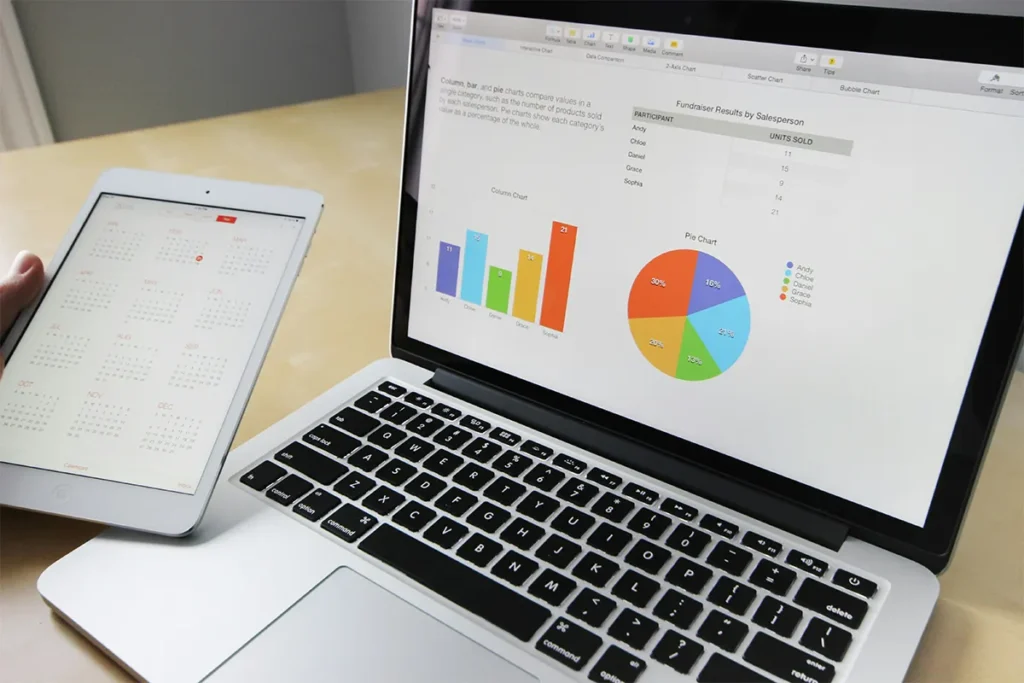Keeping track of customers is the most beneficial practice in business. The interpretation of customer behavioral data is important to formulate new strategies and maximize conversions. In this rapidly changing world, it is imperative to stay responsive to customer needs and be competitive. Having a comprehensive customer tracking tool at the workplace raises the performance, productivity, and success of a business.
The new emerging trends, customer preferences, and personalized customer experience are all possible with a good tool. Insights into analytical reports give you knowledge about what your customers are searching for. Long-term relationships, continuous improvement, and more conversions can be achieved via these 8 best customer tracking software in 2024.
Selection Criteria for Customer Tracking Software
Before you choose software, you need to think about your business needs. Every company is different. You must understand which features are most important for you. Do you need strong reporting tools? Or do you want easy integration with other software? Make a list of your must-have features. This helps to narrow down the choices. Check how many users will use the software to boost customer acquisition. You should also look at the costs. Software that fits your budget and needs is critical.
1. User interface: The user interface is the first thing you see in customer tracking software. A clean and simple layout helps users to navigate easily. This makes it faster to find important features. If the software is confusing, users can leave frustrated. A good user interface keeps users engaging. It can also reduce training time for new employees.
2. Integration capabilities: Integration capabilities are next on the list. The best software connect easily with other tools you already use. This may include email, chat, or project management software. When applications work together, data can flow smooth. This saves time and reduces errors. Users can get a complete picture of customer interactions. The more integrated the software is, the happier the users will be.
3. Reporting and analytics: Reporting and analytics matters too. Good customer tracking software includes strong reporting features. These features help businesses to see trends and make decisions. Users can look at data from different angles. They can track sales, customer behavior, and marketing efforts. The insights from reports can drive business growth. Companies that do not use data can miss important opportunities.
4. Responsive customer support: Customer support should not be overlooked. Users may need help at any time. A responsive support team can make a big difference. Live chat, email, or phone support helps users to solve problems quickly. If a company does not give strong support, users can feel bad. Good customer support helps build trust and loyalty.
5. Customization options: Every business is unique. Customizing the software allows users to make it suit their needs. Options can include adding fields, changing workflows, or adjusting layouts. The software becomes more valuable when it is more customizable.
6. Pricing models: This also affects the choice. Different companies have different budgets. Some software allows monthly payments. Other software may only charge yearly. It is important to know what you get for your money. Users need to find plans that fit their needs without extra costs.
7. User reviews and ratings: User reviews and ratings give real information. They show what real users think about the software. Positive reviews can show good features. Negative feedback can warn users about problems. Checking reviews helps businesses make smart choices. It gives a clearer picture of the software’s performance.

Top 8 Customer Tracking Software in 2024
Finding the famous customer tracking software that offers realistic features is difficult. Do not worry. We have tested and tried various tools to gather the results.
1. DejaOffice
DejaOffice is a strong customer tracking software. It works well with major CRM platforms like Outlook, Google, and Act! CRM. It is made to help businesses of all sizes. DejaOffice makes sure your customer data stays the same on all devices. Users enjoy its easy-to-use interface. This helps manage customer information on a desktop or mobile device.
It is very good in contact management and allows users to sort and track customer interactions well. The software has a good calendar and task management tools. These tools help ensure that no appointments or follow-ups are missed. DejaOffice also gives safe data management synchronization. This means real-time updates and better customer relationships.
Pros:
- Offline functionality
- Integration flexibility
- User-friendly interface
- Comprehensive customization
Cons:
- Not for beginners
- Requires downloading
- Installation takes space
2. HubSpot
HubSpot is a popular choice for customer tracking software. Many people like it for its complete CRM solutions. HubSpot is a tool for many kinds of businesses. It combines marketing, sales, and customer service tools into one platform. This helps users manage customer interactions well. Users can also automate simple tasks. They can improve customer engagement across different channels.
The tool offers good contact management. This allows businesses to organize customer data easily. Its automation tools can reduce manual work by taking care of tasks like email follow-ups. HubSpot also has strong analytics tools. These tools give users important insights. This helps them improve their strategies, keep customers, and make sales better.
3. Salesforce
Salesforce is a strong CRM platform. It is known for tracking customers well. It is for businesses of all sizes. Salesforce is flexible and can be customized. This helps companies manage customer relationships better. It also helps streamline their operations. This leads to better customer satisfaction.
The tool has many important features. It includes tools for tracking and managing customer interactions. Their contact management system helps businesses organize customer data efficiently. Salesforce can automate repetitive tasks, like managing leads and sending emails. Its analytics tools give users useful insights. This helps businesses improve their sales strategies.
Pros:
- Comprehensive free plan
- Robust integration options
- Advanced marketing tools
- User-friendly design
Cons:
- Limited customization in the free plan
- High cost for premium features
- Complexity in advanced settings
- Data storage limits in lower tiers
4. Zoho CRM
Zoho CRM has a simple interface for all kinds of businesses. It has strong features for managing customer relationships well. It also helps streamline the sales process. It can work with many third-party applications. It has many customization options. This makes Zoho CRM a good tool for managing customers.
The CRM has advanced automation features. It makes work easier by handling tasks that repeat. You can customize dashboards for better tracking and reporting of performance. The software helps with communication using email, phone, and social media. It can connect with other Zoho apps and outside services to improve its functions and meet many business needs.
Pros:
- Extensive customization options
- Robust integration capabilities
- Advanced automation features
- User-friendly interface
Cons:
- Steep learning curve
- Can be expensive at higher tiers
- Complex setup for advanced features
- Occasional performance slowdowns
5. Pipedrive
Pipedrive is made for sales teams. It improves workflow and productivity with an easy-to-use design. It visualizes the sales pipeline, which makes deal tracking easier and helps with customer relationship management. It connects to different third-party applications and has many options for customization. This makes Pipedrive a useful tool for improving sales work.
This has a visual sales pipeline. It allows simple deal management and tracking. Automation tools cut down on repeated tasks. Custom reports give important details about sales performance. Support for communication through email and phone helps with customer interactions. It also connects with many tools and services to improve sales operations.
Pros:
- Visual sales pipeline
- Intuitive user interface
- Strong automation features
- Customizable reporting
Cons:
- Limited free plan
- High cost for advanced features
- Basic customer support
- Integration complexity
6. Freshsales
Freshsales helps sales processes to work better. It has a friendly interface that is easy to use. You can see sales pipelines and customer interactions clearly. This makes managing deals more efficient. It connects with different third-party applications and has many customization options. Overall, it helps with productivity and is a useful tool for sales teams.
It has a visual sales pipeline that makes deal management and tracking easier. Automation tools reduce repeated work. Custom reports give important insights into sales. It supports communication through email, phone, and chat for better customer engagement. It connects with many third-party applications to improve its functions and sales operations.
Pros:
- Visual sales pipeline
- Advanced automation tools
- Multichannel communication
- Customizable reporting
Cons:
- Limited features in lower tiers
- Steep learning curve
- Occasional performance issues
- Expensive premium plans
7. Insightly

Insightly is a strong platform for managing customer relationships and projects. It has an easy interface. It helps users track interactions and project milestones well. Insightly offers many integration options and custom features. It adjusts to different business needs. This helps improve customer management and project oversight. It is a valuable tool for making productivity better.
It provides a visual pipeline for deal management. Automation tools reduce repetitive tasks. Custom dashboards give important performance insights. It supports communication through email and social media. This helps with customer engagement. It can integrate with many third-party applications. This makes CRM and project management even better.
Pros:
- Comprehensive CRM features
- Intuitive user interface
- Strong project management tools
- Robust integration options
Cons:
- Limited reporting capabilities
- Steep learning curve
- Higher cost for advanced features
- Occasional performance slowdowns
8. Microsoft Dynamics 365
Microsoft Dynamics 365 combines CRM and ERP in one platform. It helps with business management. It is easy to use. It supports detailed customer management and automates processes. There are many customization options. Integration is seamless. This makes Dynamics 365 adaptable for various business needs. It is a strong solution for better sales and customer service.
Dynamics 365 has a strong CRM system. It includes a visual sales pipeline for deal management. Automation makes workflows smoother. It reduces manual tasks. Custom dashboards provide valuable insights about performance. It supports communication through many channels. This ensures effective customer engagement. It can integrate with Microsoft products and many third-party applications. This improves functionality and efficiency.
Pros:
- Comprehensive CRM and ERP integration
- Highly customizable features
- Advanced analytics and reporting
- Seamless integration with Microsoft products
Cons:
- High cost for full functionality
- Complex setup and configuration
- Steep learning curve
- Performance issues with large datasets
Conclusion
DejaOffice is a popular customer tracking software. It is known for its strong offline abilities. It also has flexible ways to connect with other tools. The interface is easy to use. It helps people find what they need quickly. The software has many customization features. This means it can fit different business needs. This makes it a useful tool. However, users must think about its limits. It has basic reporting tools. There can be performance problems when users work with bigger datasets.
Good tools for customer relationship management are very important for customer tracking. It gives insights into how customers interact. Companies can watch purchases, visits, and feedback easily. This helps them understand customer behavior better. It leads to better service quality and personalized experiences. Businesses can adjust their approaches using data. This builds stronger customer relationships and increases satisfaction.
Building strong relationships using good customer tracking leads to more loyalty. It also leads to repeat business. Happy customers are more likely to come back. This results in higher sales and more profit. By using customer data, businesses can find trends and preferences. They can improve their marketing strategies and overall performance. This software helps businesses grow. It helps them be successful for a long time. It is useful in a competitive market.
